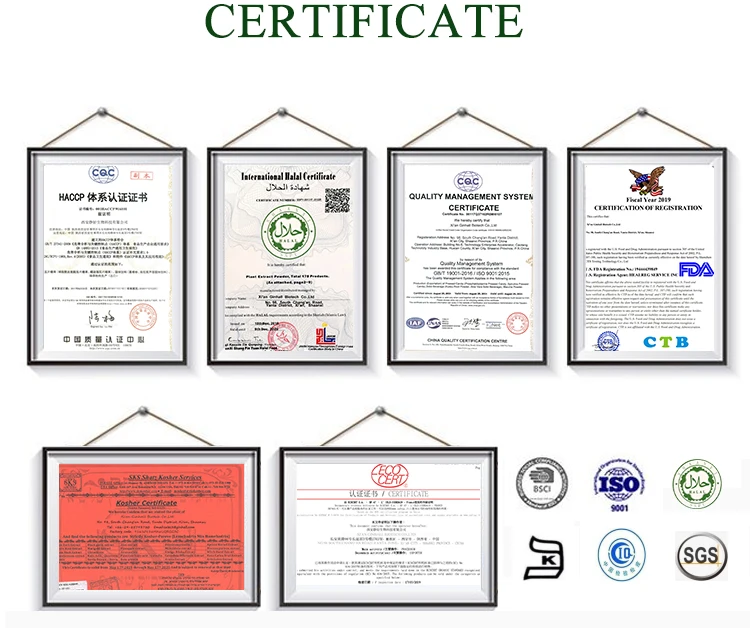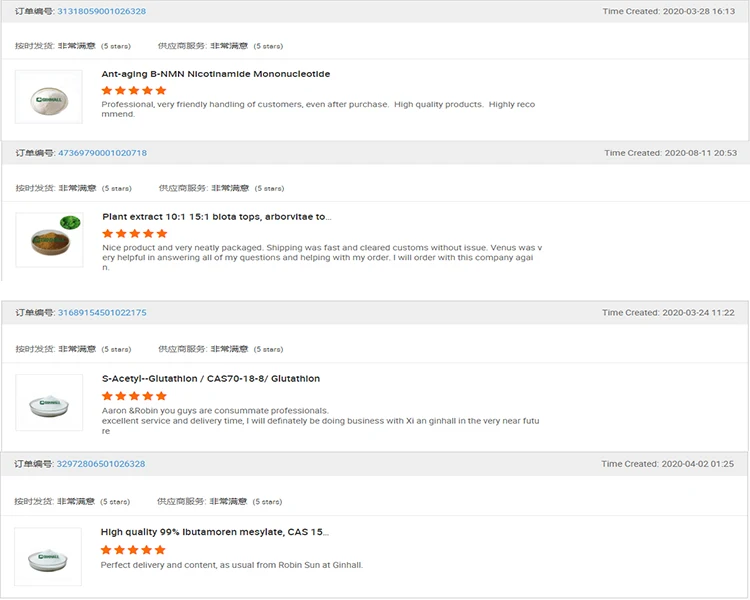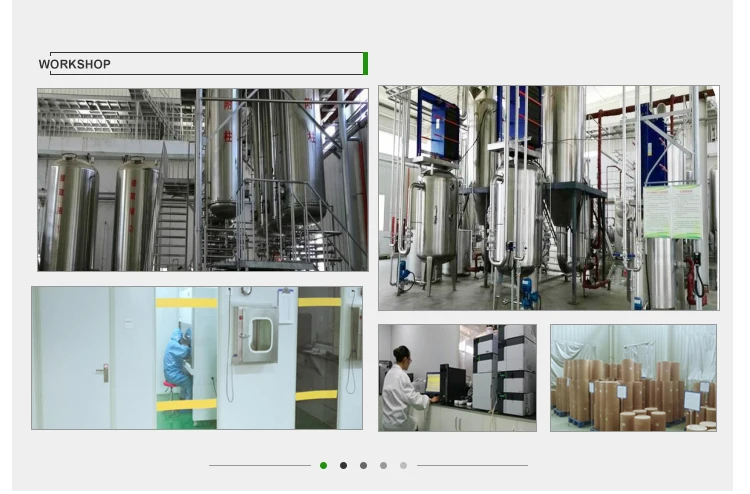Quercetin 98% Quercetin Powder Pharmaceutical Grade Manufacturer Warehouse Supply
Other recommendations for your business
Quercetin 98% Quercetin Powder Pharmaceutical Grade Manufacturer Warehouse Supply

Product Description

What is dihydroquercetin?
Quercetin is a flavonol compound, extracted from Sophora japonica. Quercetin can resist free radicals, complex or capture free radicals to prevent the body's lipid peroxidation; it can directly inhibit tumors, and effectively exert anti-cancer and anti-cancer effects; it is anti-bacterial, anti-inflammatory, anti-allergic, and prevents diabetes complications.
Product name | Quercetin | Appearance | Light yellow powder |
Botanical Source | Pseudotsuga menziesii | Test Method | HPLC |
Specification | 98% | Mesh | 100% pass 80 mesh |
Application | Health Care | Shelf Life | 2 years |
Function of dihydroquercetin

1. Antioxidant effect
Quercetin is a natural chelating agent that can chelate iron in the body, reduce iron overload in the body, and reduce oxidative damage caused by iron overload.
Quercetin has many functions such as anti-oxidation, scavenging free radicals, and inhibiting lipid peroxidation. It can resist oxidation, protect cardiovascular health, and also shows a good effect in anti-cancer. However, this kind of research data comes from cytology experiments or animal experiments, and whether it works directly in humans remains to be verified.
2.Inhibit tumor activity
Quercetin can act on chemosensitization and radiosensitization chemotherapy as well as anti-radiation, protecting normal cells from the side effects of chemotherapy and radiotherapy. These advantages can significantly enhance its anti-cancer therapeutic effect. A variety of flavonols such as quercetin, kaempferol, myricetone have a certain preventive effect on pancreatic cancer, especially for smokers, the effect may be more obvious.
Quercetin can exert anti-tumor effects by inducing tumor cell apoptosis. The expression of glucose transporter in primary liver cancer is significantly increased, and inhibition of its expression can be used as a new treatment direction for primary liver cancer. In the field of gastric cancer research, it has also been found that quercetin can induce cell apoptosis, by triggering mitochondrial apoptosis-dependent growth inhibition, thereby exerting an anti-tumor effect, which can be used as a new target for the treatment of gastric cancer..
3. Protection of the heart
Quercetin has the effects of lowering blood pressure, enhancing capillary resistance, reducing capillary fragility, lowering blood lipids, dilating coronary arteries, increasing coronary blood flow, etc. It also has an adjuvant therapeutic effect on patients with coronary heart disease and hypertension.
Quercetin can effectively reduce the oxidative damage of cardiomyocytes mediated by H2O2, thereby inhibiting cardiomyocyte apoptosis. Quercetin treatment significantly reduced the number of ventricular premature beats, indicating that quercetin has a significant cardioprotective effect on coronary heart disease.
4. Antiviral activity
Quercetin can significantly reduce the replication rate of hepatitis C virus. At the same time, it was found that the infectivity of virus particles treated with quercetin was reduced by 65%, indicating that quercetin affected the integrity of the virus. It was further confirmed by molecular experiments that quercetin Cortin can play an antiviral effect by preventing the up-regulation of diacylglycerol acyltransferase by hepatitis C virus and the typical localization of hepatitis C virus core protein on the surface of lipid droplets.
Application of dihydroquercetin



1. In the pharmaceutical industry
Used in pharmaceuticals, it has the effects of expectorating, relieving cough, and relieving asthma. It is used for the treatment of chronic bronchitis. It also has an adjuvant therapeutic effect on patients with coronary heart disease and hypertension; a flavonoid compound with anticancer activity, which is mitochondrial ATPase and Phosphodiesterase inhibitor, inhibits PI3 kinase activity and slightly inhibits PIP kinase activity. It has an anti-proliferation effect on cancer cell lines, reduces the growth of cancer cells through type II estrogen receptors, and blocks human leukemia T cells in the G1 late stage of the cell cycle. Inhibit fatty acid synthase activity.
2.In the food industry
Mainly used in fats, beverages, cold drinks, meat processing products.
3.Used as analytical standard
Product Inspection

Certifications

Packing&Delivery

Five Star Praise

About Us


FAQ

Supplier's popular products
Contact Supplier
We have more categories for you. lf you can't find the products you want above,just fill in the form and tell us whatproducts you want to import from China.


















